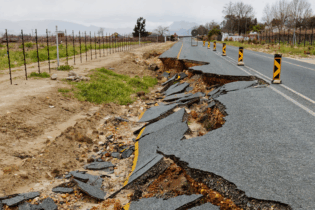The South African Civil Aviation Authority, which in July promulgated regulations governing the operation of drones, is considering requirements for manufacturers.
This would be done “within reason” to ensure that any “gaps in the value chain” were taken care of, the director of the aviation authority, Poppy Khoza, said. Drones, or remotely piloted aircraft systems, were primarily designed for military operations and surveillance, but have found other applications, such as in scientific research and film-making. The risk of drones causing physical harm to people or causing midair disruptions in the aviation system was among the reasons used to justify their regulation. SA is one of the first countries to draft regulations for drone use and is the pioneer on the African continent. Since the regulations came into effect, the civil aviation authority has issued 187 certificates of registration and 27 remote pilot licences. Khoza said applications for licences had come from organisations and people wanting to use drones to fight rhino poaching and for filming, among other uses. International practice also showed a need to regulate manufacturers, she said.“It would be done within reason and we would look at risk factors that need to be mitigated. It needs to be outcomes based and needs to be mitigating risk,” she said.
Local defence expert Helmoed Römer Heitman said there were few manufacturers of drones in SA, but it was necessary to ensure that the drones worked well. “There is enough evidence that drones can be dangerous, even in well-meaning hands,” he said. Some countries required drones to have software that prevented them from flying in an airport environment, because small drones had bumped into aircraft. SA could look into this. The country could also enforce height restrictions on drones, he said. Khoza said the civil aviation authority was attending to requests by other African countries for technical assistance to improve their regulation systems. It was assisting 13 countries on the continent to craft regulations governing the use of drones, she said.





